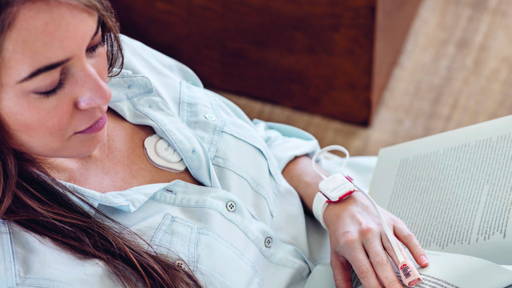The comprehensive Bambi Belt solution, comprised of a disposable Bambi Belt, a reusable Bambi Bridge, and the Bambi Interface, has successfully received CE marking for all its components. This announcement comes after the Bambi Interface, the final piece of the puzzle, was granted CE approval.
CEO Fabio Bambang Oetomo expressed his excitement, acknowledging the challenges they faced during the regulatory process due to the strain on notified bodies caused by the European medical device regulation (MDR). "It tested the patience of both the Bambi team and all of our stakeholders – investors, suppliers, and hospital staff," he remarked. "But now that we have reached this significant milestone, I look forward to seeing the Bambi Belt in action standalone without any adhesive electrodes, dramatically improving the quality of care for premature babies. We look forward to seeing the smiles on the faces of parents, nurses, and last but certainly not least the babies in the hospital."
The Path to Certification
With the full CE marking in place, Bambi Medical is poised to introduce the Bambi Belt to the European market. The initial launch will cover the Netherlands, Germany, and Sweden, with further expansion on the horizon.
The Bambi Belt, developed by Bambi Medical since its inception in 2016, is a wireless neonatal vital sign monitoring system. It works by wrapping the disposable belt around a baby's chest, with integrated sensors measuring ECG and dEMG non-intrusively. Data is then transmitted via the Bambi Bridge to the Bambi Interface, which in turn relays it to the bedside patient monitor. The system seamlessly integrates with existing hospital infrastructure and ensures babies experience minimal discomfort compared to traditional adhesive electrode-based monitoring systems.
Notably, the Bambi Belt's wireless features enable parents to provide Kangaroo Mother Care, a crucial practice for infant development recommended by the World Health Organization (WHO).
Revolutionizing Infant Care
The original concept for the system was conceived by Professor Sidarto Bambang Oetomo, MD Ph.D., a retired Pediatrician-Neonatologist at the Maxima Medical Center and Chief Medical Officer of Bambi Medical, during his time at the Department of Industrial Design at the Eindhoven University of Technology (TU/e).
Bambi Medical collaborated with Benchmark Electronics for product development and manufacturing of the Bambi Bridge. Freudenberg Medical, a silicone injection molding company based in Kaiserslautern, Germany, is the manufacturing partner for the Bambi Belt, while the Bambi Interface is produced by Sioux Technology Assembly in Eindhoven, The Netherlands. The company maintains close collaborations with the Maxima Medical Center in Veldhoven and the Amsterdam University Medical Center.






